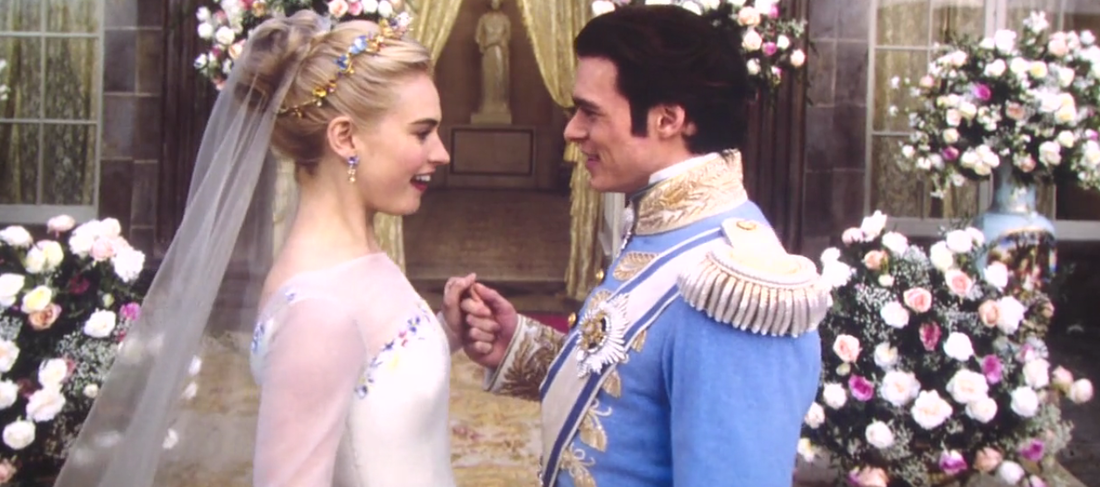|
Everyone knows the standard opening and closing formulas, from "Once upon a time " to "happily ever after." But "happily ever after" is not the only way to conclude a tale.
I'm fond of "Snip, snap, snout, This tale's told out," or the Spanish equivalent: "Colorín, colorado, Este cuento se ha acabado." (This story is over.) Some folktales from the Hausa people of Africa conclude with the phrase "Off with the rat's head." The narrator may say something that evokes a scene of people sitting around telling stories. The narrator of Tabagnino the Hunchback hands off their role to the spectator. "Long tale, narrow way, I've finished, so now say your say." Or there's a Russian formula: "I hope you won't fail to be pleased by my tale. For a potful of butter, I tell you another." It's interesting how sometimes the narrator will work their way into the story. Rather than say the story is true, they might mention that they were present: "They put on the dog and high did they soar, They saw me not, I stood behind the door." (Calvino, "King Crin," 60). In a more colorful twist, the narrator might describe the characters' happiness but include a mournful contrast to their own misfortune. "Ditu Migniulellu" ends: "That very same day, they celebrated their wedding and invited all the people of the neighboring towns. But as for me, I arrived too late and had to sit under the table, where I received only kicks and bones. What did you do that day?" Italian Folktales, by Italo Calvino, has a wealth of dour fairytale endings. "They had a big feast. I was there, under the table. They threw me a bone, which hit me on the nose and stuck for good." (The Little Shepherd, 26) And there they lived a life happy and long, But nothing did they ever give me for my song. The Sorceress's Head, 308. For similar laments that the storyteller didn't get paid, see Fair Brow (141), The Three Castles (42), Monkey Palace (224), and Prezzemolina (314). Merrily through life they went, But were only content To give me one cent I never spent. (Apple Girl, 310) They sat down and ate and drank their fill, while here we are, dying of thirst. (Ari-Ari, Donkey, Donkey, Money, Money! 441) Then everyone, including Emile and Cannelora, took his bride home, and there was great rejoicing throughout the kingdom. Poor girls were given the means for a fine wedding, but poor little me was not present, so here I am empty-handed! (Cannelora, 474) They danced and sang and ate and ate, But us they gave not e'en a blessed date. (The Handmade King, 493) They were as happy as happy could be, While here we sit picking [or grinding] our teeth. (Catherine the Wise, 546; see also Grattula-Beddattula, 529, or The Ismailian Merchant, 549, The Bejeweled Boot, 579, The Mouse with the Long Tale, 656.) They were always happy and content, While we are here without a cent. (The Sultan with the Itch, 559. See also The King's Son in the Henhouse, 631) And they remained emperor and empress their whole life long, while we are still as poor as ever. (The Two Sea Merchants, 616) They were all made princes, while I've stayed as poor a soul as ever. (The Twelve Oxen, 50) Their life was happy and long; But we, poor we, sing another song. (The Foppish King, 675) And another favorite of mine: A few days later the two young people were married. At the wedding banquet they served radish preserves, peeled mice, skinned cats, and fried monkeys. They ate that, and enough was left over for tomorrow. To top off everything was a sprig of rosemary, token of remembrance, but nobody thought to say to me so much as "Have a glass of wine!" (Invisible Grandfather, 106)
0 Comments
I've been on a fairy research track recently, mainly going through my "Little Folk" page and trying to fact-check and add citations. That's going to be a long process.
On the way, I came across the book Strange Terrain: The Fairy World in Newfoundland, by Barbara Rieti. It took a while to get a copy through Interlibrary Loan, but I really enjoyed it. It's Rieti's research, and a lot of the text is from recordings of interviews she had with locals. It's a great look into the folklore of Newfoundland, with meticulous sources and connections to previously recorded folklore. There are also some interesting points about how folklore starts. It's easy to think of traditional stories as being hundreds of years old, off in some forgotten time, but Rieti mentions some real people, community figures whose oddities passed into local legends. Some of these cases were very recent. In one case, Rieti was tracking down the source of a tale about a little girl named Lucy Harris who had been stolen away by fairies. To her shock, it turned out that the little girl was not only still alive, but only in her sixties, and rather offended by people bothering her about the story. In reality, she had been lost in the woods for more than a week, unable to move due to hypothermia, and eating snow to survive. Her legs had to be amputated. Rieti calls it "the most embarrassing episode in my fieldwork" but it is really enlightening. She also quotes some of the contemporary news articles, where miscommunications and misquotes are rampant, contributing to the spread of the local legend. If you're interested in Newfoundland folklore or just how academic research is conducted, check out this book. It was hard for me to find a copy, but it was worth the hassle. |
About
Researching folktales and fairies, with a focus on common tale types. Archives
July 2024
Categories
All
|
Writing in Margins

 RSS Feed
RSS Feed
